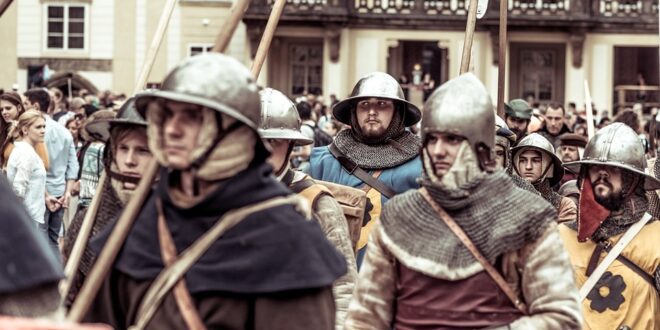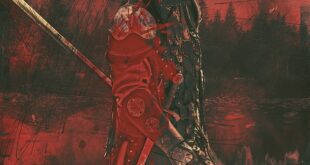30 Astounding Historical Moments You Didn’t Know Existed
The Battle of Shrute
In 1052, an obscure military clash between the Byzantine Empire and the tiny Armenian kingdom of Vaspurakan took place near the town of Shrute, now in eastern Turkey.
Three Popes in One Day
In a strange and confusing event in 1409, three popes were elected in one day by the Council of Pisa, leading to a period of ecclesiastical turmoil in Europe.
Bear Companions
During World War II, Polish soldiers in Iran adopted orphaned bear cubs and trained them to carry supplies, becoming beloved companions to the soldiers.
Cosmonaut Pioneers
Valentina Tereshkova became the first woman to travel to space when she orbited the Earth in 1963 as part of the Soviet Union’s space program.
First Female Self-Made Millionaire
Madam C.J. Walker, born in 1867 to formerly enslaved parents, became the first female self-made millionaire in the United States by developing and marketing hair care products for black women.
The Miracle of Dunkirk
In 1940, Allied soldiers were miraculously evacuated from the beaches of Dunkirk after being trapped by advancing German forces in one of the most harrowing moments of World War II.
The First African American General
In 1940, Benjamin O. Davis Sr. became the first African American general in the US Army, paving the way for future Black military leaders.
The Blackout
During World War II, the citizens of London experienced a prolonged blackout to avoid making the city a target for German bombing, with the darkness creating a distinctive wartime atmosphere.
Walt Disney’s First Big Break
In 1928, Walt Disney’s creation Mickey Mouse made his debut in the short film “Steamboat Willie,” which became a blockbuster hit and launched Disney’s movie career.
Boston’s Molasses Disaster
In 1919, a massive storage tank containing molasses burst open in Boston, unleashing a wave of sticky sludge that killed 21 people and caused widespread property damage.
Nisha Sharma’s Wedding Bust
In a dramatic moment in 2003, Indian bride-to-be Nisha Sharma exposed her groom’s family for demanding a large dowry, setting off a wave of public protest against the practice.
The Earliest Writing
The Sumerians of ancient Mesopotamia developed cuneiform writing around 3400 BCE, creating the world’s first written language and setting the stage for the development of civilization.
The Philadelphia Experiment
In a bizarre experiment during World War II, the US Navy attempted to make a ship invisible to enemy detection by using high-frequency electromagnetic fields, leading to rumors of time travel and other strange phenomena.
The Sinking of the Lusitania
In 1915, the luxury liner Lusitania was sunk by a German submarine off the coast of Ireland, leading to an outcry in the United States and eventually contributing to its entry into World War I.
Nadia Comăneci
At the 1976 Olympics in Montreal, Romanian gymnast Nadia Comăneci became the first person ever to score a perfect 10 in a gymnastics competition, heralding a new era of athletic achievement.
The Bhopal Disaster
In 1984, a gas leak at the Union Carbide pesticide plant in Bhopal, India, released toxic fumes that killed thousands of people and left countless others with lifelong health problems.
The Salt March
In 1930, Indian national leader Mohandas Gandhi led a 240-mile march to the Arabian Sea to protest British colonial policy and inspire greater Indian independence.
The Venerable Bede
Bede, an Anglo-Saxon monk and scholar, wrote one of the most influential works of early English history, “The Ecclesiastical History of the English People,” in the 8th century.
The Nuclear Explosion You’ve Never Heard Of
In 1958, the US government accidentally detonated a nuclear bomb underground in rural Mississippi, rendering a swath of land uninhabitable for years to come.
The Apology of Charles Darwin
In a surprising and moving gesture in 2008, the Church of England apologized to Charles Darwin for misunderstanding and misusing his theories of evolution over the preceding 150 years.
The Rosetta Stone
The discovery of the Rosetta Stone, an ancient Egyptian artifact with text inscribed in hieroglyphics and Greek, helped scholars decipher the written language of ancient Egypt.
The Scopes Monkey Trial
In 1925, a high-profile court case pitted Tennessee against high school teacher John T. Scopes for teaching evolution in a time of widespread religious fundamentalism.
The Berlin Airlift
In 1948, the US and its allies used air transport to deliver food and other supplies to West Berlin after Soviet forces blockaded the city, helping to stave off starvation.
Apollo 13
The harrowing story of the abortive Apollo 13 mission in 1970, in which the lives of astronauts were put in grave danger after their spacecraft was damaged, is a testament to the resilience and ingenuity of NASA.
Nyimbo za Kristo
Created in the 1930s, the Nyimbo za Kristo hymnbook has become a cornerstone of Tanzanian music and a symbol of religious devotion across East Africa.
Ernst Haeckel’s Radiolaria
The intricate and beautiful illustrations of Radiolaria by biologist Ernst Haeckel in the 19th century represent a fascinating intersection of art and science.
The Swallowing of Leuven
In the 16th century, French forces overran the city of Leuven, Belgium, in a savage pillaging that became a cause célèbre in Europe, inspiring artistic works and stirring public opinion.
A Defection for the Ages
In 1961, top Soviet spy Oleg Penkovsky defected to the West, becoming one of the most valuable espionage assets of the Cold War.
The Wisdom of Confucius
The teachings of Chinese philosopher Confucius have had a profound impact on numerous aspects of Chinese culture, spanning history, ethics, and social organization.
Jeanne Baret’s Transgender Journey
French botanist Jeanne Baret shocked her contemporaries in the 18th century by disguising herself as a man and joining a scientific expedition to South America, where she discovered new plant species.
The World’s First Traffic Light
In 1868, a crude machine that resembled a gas lamp was installed at an intersection in London, creating the world’s first operating traffic light.
The Kalevala
The epic Finnish poem Kalevala, compiled and edited by Elias Lönnrot in the 19th century, became a unifying force for Finnish national identity and a cornerstone of Finnish art and culture.
 Mind Uncharted Explore. Discover. Learn.
Mind Uncharted Explore. Discover. Learn.



